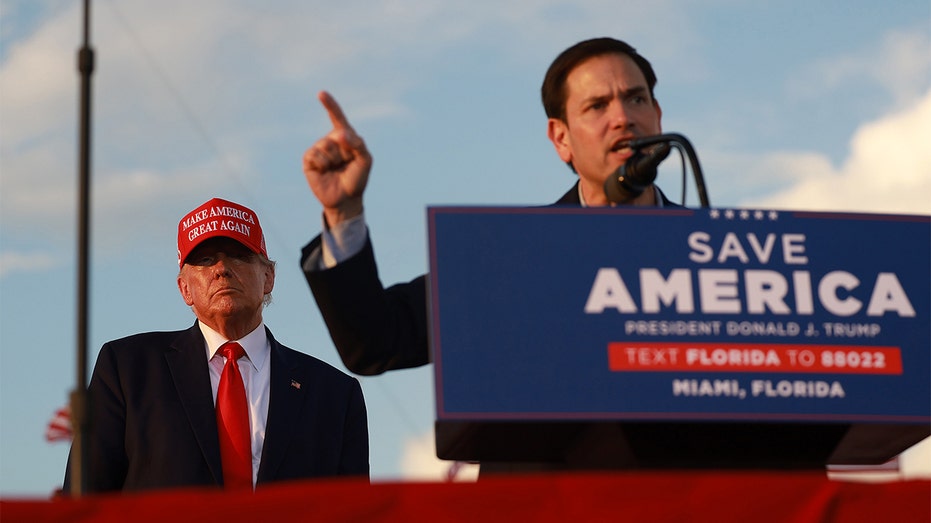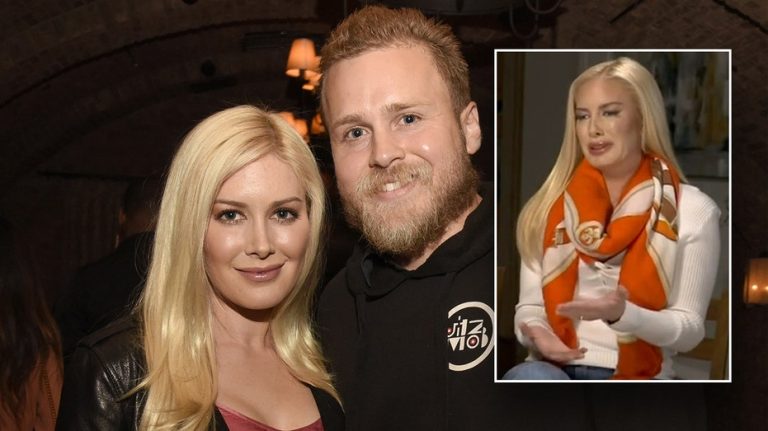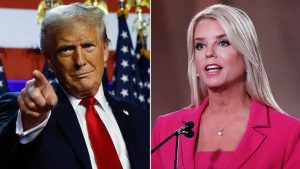Republican Florida Sen. Marco Rubio is bracing himself for the hot seat as he prepares to sit through the often-arduous confirmation hearing process on Wednesday with the Senate Committee on Foreign Relations as he vies to lead the State Department under the next Trump administration.
Though Rubio is not expected to get off easy in front of the panel of his colleagues posed to pressure him on everything ranging from the war in Ukraine, conflict in the Middle East and a trade war with China, which Trump has threatened to drastically increase, he is expected to pass through more smoothly than other candidates Trump has slated for his Cabinet.
In an excerpt of Rubio’s remarks obtained by Fox News Digital ahead of his address to the Senate body, he highlights the security threats that have emerged following the end of the Cold War and the belief that democracy could succeed across the globe and international free trade was the way of the future.
“While America far too often continued to prioritize the ‘global order’ above our core national interests, other nations continued to act the way countries always have and always will, in what they perceive to be in their best interest,” the remarks read. “And instead of folding into the post-Cold War global order, they have manipulated it to serve their interest at the expense of ours.”
“The postwar global order is not just obsolete; it is now a weapon being used against us,” he added.
Senate Democrat Whip Dick Durbin of Illinois already threw his support behind his Republican peer and on Monday said, “Sen. Rubio and I share many similar views on foreign policy and, as a result, have worked closely together in the Senate to move forward with legislation regarding human rights around the world.”
“I believe Senator Rubio has a thorough understanding of the United States’ role on an international scale, has served with honor on the Senate Foreign Relations Committee, and is a good choice to lead the State Department. I plan to vote yes on his nomination when it comes before the Senate,” Durbin said in a statement after a meeting in which they discussed security issues involving Russia’s threat in the Baltic Sea and the NATO alliance.
Trump announced his nomination of Rubio for the top diplomatic job in November, which the senior member on the Senate Foreign Relations Committee said was not only a “tremendous honor” but a “tremendous responsibility.”
“The job of the secretary of state is to execute on the foreign policy set by the elected president of the United States. And I hope to have the opportunity to do it, if my current colleagues here in the U.S. Senate confirm me so,” he told reporters on the Hill.
But Rubio’s commitment to execute the wishes of the executive office could also prove to be his most difficult hurdle, not only during Senate questioning but also in taking up the job should he be approved by the upper chamber.
Trump has repeatedly made clear he expects unwavering loyalty from Cabinet members, advisers in the White House and even military leaders, and reports this week suggest the incoming administration may be planning on clearing house in the National Security Council to ensure the president is only surrounded by those who support his agenda, according to an Associated Press report.
While Rubio and Trump see eye-to-eye on issues like U.S. support for Israel, remaining tough on China and opposing dictatorial powers in Latin America – all of which are unlikely to garner much opposition from Democrats in the Senate – there are issues that could prove tricky for the three-term senator to navigate.
TRUMP NOMINEE PETE HEGSETH FENDS OFF DEMOCRATIC ATTACKS AT FIERY CONFIRMATION HEARING
Rubio and Trump have a history of exchanging barbs, particularly during the 2016 presidential race.
The duo have long patched up their hostilities in large part because Rubio has more closely aligned himself behind Trump, a move that has meant he is no novice when it comes to walking the political tightrope between appeasing Trump and pursing issues important to him.
This balancing act became evident on the campaign trail when Rubio was asked about controversial comments made by the Trump camp when it came to U.S. support for Ukraine and how to end the now three-year war.
“I’m not on Russia’s side, but unfortunately the reality of it is that the way the war in Ukraine is going to end is with a negotiated settlement,” Rubio said in a September interview with NBC’s “Meet the Press.”
Rubio dodged questions on whether he backed comments made by Vice President-elect JD Vance when he suggested Ukraine cede land to Russia and agree to a demilitarized zone along the current front lines.
Instead, he said, “I would be comfortable with a deal that ends these hostilities and that, I think, is favorable to Ukraine, meaning that they have their own sovereignty, that they don’t become a satellite state or a puppet state.”
Rubio also backed Trump after concern mounted over the now-president-elect’s position on NATO when he said he would encourage any nation, including Russia, to “do whatever the hell they want” to any NATO nation not fulfilling their defense spending commitments.
“Donald Trump is not a member of the Council on Foreign Relations,” Rubio told CNN’s Jake Tapper in February. “He doesn’t talk like a traditional politician, and we’ve already been through this. You would think people would’ve figured it out by now.”
That said, Rubio in 2019 also helped reintroduce bipartisan legislation that would prohibit any president from unilaterally withdrawing from NATO without Senate approval, a move that Trump threatened during his first term and which remained a top concern that was echoed by Trump’s former NSC adviser, John Bolton, during the latest presidential race.
Rubio’s unwavering outward loyalty to the incoming president could be tested if he is questioned about the president-elect’s expansionist rhetoric, like acquiring Greenland and the Panama Canal through the use of the U.S. military.
Fox News Digital could not reach Rubio’s office for comment on where he stands on U.S. intervention in Greenland, which is technically under the protection of NATO so long as it remains a territory of Denmark, as well as the Panama Canal, which the U.S. gave back to Panama in 1999 but which Trump has accused China of taking over.





